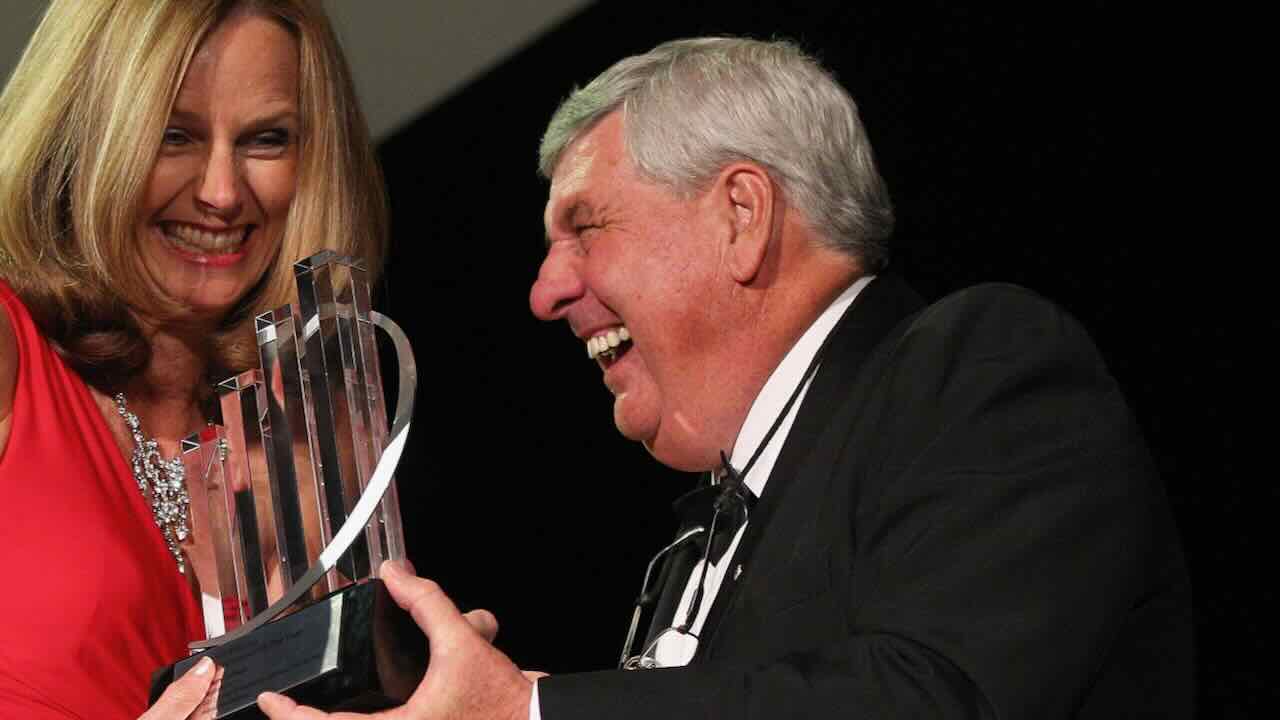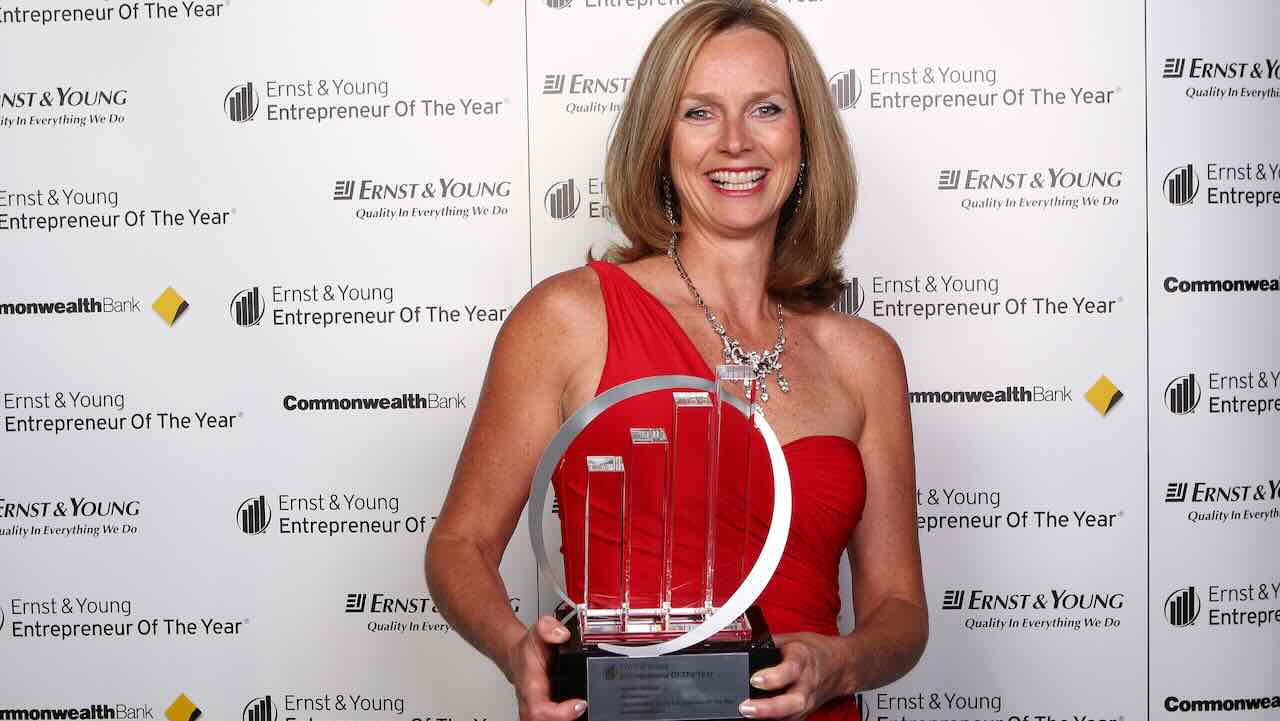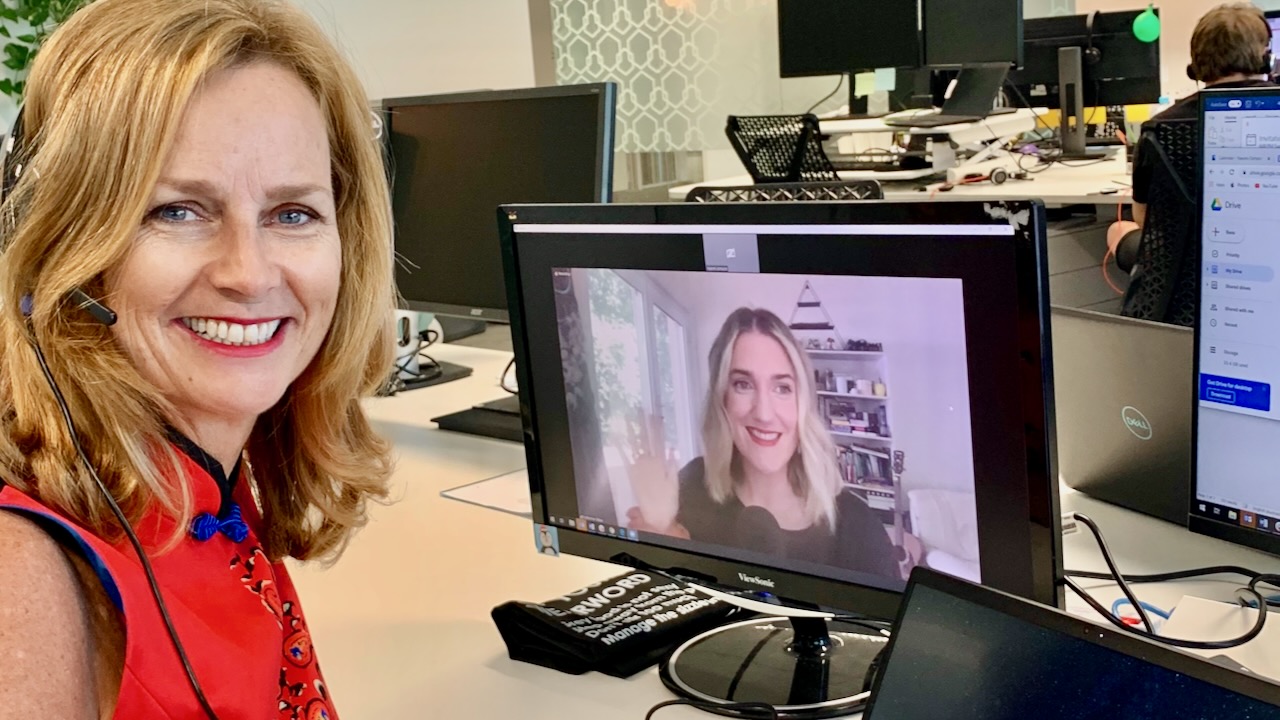It doesn't matter whether I'm speaking to the senior leadership team of a major corporation, a room full of small business owners, or a group of bright-eyed university students. The question I am asked more than any other, in one form or another, is this: "What is it that really makes an entrepreneur?" I find that this is the question that conference organisers and audiences alike want answered in my Entrepreneur Mindset Keynote.
Is it a magical, innate personality trait you're born with? Is it the willingness to take insane, reckless risks? Is it a brilliant, once-in-a-generation idea?
After four decades in the business world, from the structured corridors of corporate giants to the scrappy, all-in beginnings of RedBalloon in my living room, and from the high-stakes pressure of the Shark Tank chair, I have come to a firm and unwavering conclusion.
Entrepreneurship is not a job title. It is not a personality type. It is not a business plan.
It is a mindset.

It is a specific, learnable, and profoundly powerful way of seeing the world. It is a set of beliefs and behaviours that, once cultivated, can be applied to any challenge, in any organisation, at any stage of life. It is the operating system for thriving in a world of constant and accelerating change.
But what does this "entrepreneurial mindset" actually look like in practice? It's a term that gets thrown around a lot, but so often, it remains a vague, aspirational concept.
In my keynote, The Entrepreneurial Mindset, I set out to demystify it completely. I wanted to break it down into its core, practical components. So today, I want to give you my definitive, from-the-trenches guide to this powerful way of thinking. This is not about theory; it's about the real, human qualities that will empower you and your team to think and act like founders, no matter your role.
Part 1: The Myth of the Risk-Taker - A Re-evaluation of "Risk"
Let's start by dismantling the biggest and most dangerous myth about the entrepreneurial mindset. We have this romantic image of the entrepreneur as a swashbuckling risk-taker, a gambler who bets the farm on a single, brilliant idea.
I have to be honest: that's not me. I have always thought of myself as being fundamentally risk-averse. When I invested my last $25,000 to start RedBalloon, it didn't feel like a reckless gamble to me. It felt like a calculated, and deeply researched, next step.
A true entrepreneur is not a reckless risk-taker. They are a master of de-risking.
Their real skill is in looking at a high-stakes, uncertain situation and systematically finding ways to reduce the uncertainty and mitigate the risk before they commit. They do this through:
- Deep Research: They become an obsessive expert on their customer and their market.
- Validation: They run small, cheap experiments to test their assumptions before they invest significant time and money.
- Building a Support Network: They surround themselves with mentors and advisors who have been there before.
The real entrepreneurial mindset is not about loving risk; it's about having the courage to face uncertainty, armed with a rigorous process for turning that uncertainty into a calculated, manageable opportunity.

Part 2: The Core of the Mindset - The Power of Insatiable Curiosity
If the entrepreneurial mindset isn't primarily about risk, then what is it about? In my experience, the absolute, foundational, non-negotiable core of this mindset is one simple, powerful human quality: curiosity.
An entrepreneur is insatiably curious. They are a learning machine. They are constantly asking questions.
- "Why is it done this way?"
- "What if we tried something different?"
- "What is our customer really struggling with?"
- "What don't I know that I need to know?"
This spirit of curiosity is the engine of all innovation. It is the antidote to the complacency and the "we've always done it this way" thinking that is the death knell of any established organisation. In a world that is changing at an exponential pace, the people and the organisations that will win are the ones that can learn and adapt the fastest. And learning always begins with a question.
How do you build a culture of curiosity?
As a leader, you must actively and intentionally foster this spirit throughout your entire organisation.
- Lead with Questions, Not Answers: In your meetings, resist the urge to be the one with all the solutions. Instead, ask powerful questions that empower your team to think for themselves.
- Celebrate the "Smart Failure": A culture of curiosity requires psychological safety. Your team will not ask "what if?" if they are terrified of getting it wrong. You must celebrate the learnings that come from well-intentioned experiments that fail.
- Encourage Cross-Functional Learning: Create opportunities for your people to learn about parts of the business outside of their own silo. A marketer who understands the challenges of the engineering team is a more empathetic and effective marketer.
A curious organisation is a growing organisation. It is a business that is always learning, always evolving, and always ready for what's next.
Part 3: The Four Pillars of the Entrepreneurial Mindset in Action
This core of curiosity is expressed through four key behavioural pillars. These are the practical, daily habits of an entrepreneurial thinker.
Pillar 1: Customer Obsession (The Empathy Engine)
A true entrepreneur is not obsessed with their product, their technology, or their competitors. They are deeply, profoundly obsessed with their customer. As I explore in my "Customer Obsessed" keynote, this is about moving beyond a simple "focus" and into a state of radical empathy.
- They are constantly seeking to understand their customer's world on a deeper level.
- They listen to their customer's frustrations, their secret hopes, and their unstated needs.
- They build their entire business around solving a real, painful problem for a specific group of people.
This obsession is what allows them to create products and experiences that feel like they were designed just for you. It's the source of all great value creation.
Pillar 2: A Bias for Action (The Momentum Maker)
An entrepreneur understands that a good plan, violently executed now, is better than a perfect plan next week. They have a powerful bias for action. They understand that the only way to learn is to do.
- They build a Minimum Viable Product (MVP) instead of waiting for a "perfect" one.
- They test their ideas with real customers as quickly and as cheaply as possible.
- They understand that momentum is the lifeblood of a new venture (or a new project within a large company). They know that a series of small, fast wins is what builds the confidence and the credibility to go after the big, audacious goals.
Pillar 3: The Art of the Story (The Connection Catalyst)
An entrepreneur is a master storyteller. They know that facts and figures might convince the mind, but a great story is what captures the heart. Whether they are pitching to an investor on Shark Tank, selling to their first customer, or recruiting their first employee, they are always telling a story.
- The Story of the Problem: They can articulate their customer's pain with passion and clarity.
- The Story of the Solution: They can explain how their idea elegantly solves that pain.
- The Story of the Vision: They can paint a vivid, compelling picture of the future they are trying to build.
This ability to weave a narrative is what allows them to attract a tribe of believers—customers, employees, and partners—who are not just buying a product, but are buying into a shared mission.
Pillar 4: Unwavering Resilience (The Unbreakable Core)
This, for me, is the ultimate differentiator. The entrepreneurial journey is a rollercoaster of emotional extremes. It is a path filled with rejection, with failure, and with moments of profound self-doubt.
A true entrepreneur has a deep well of resilience. As I explore in my "Live What You Love" keynote, this is not about being tough or unfeeling. It is about being flexible. It is the ability to get knocked down, to feel the pain, and then to have the courage to get back up, armed with the lesson you have just learned.
It is a mindset that is powered by a deep sense of purpose, a realistic optimism, and a powerful support network. Without resilience, the best idea in the world is doomed to fail at the first major obstacle.
Conclusion: It's a Mindset for Everyone
The entrepreneurial mindset is no longer a niche skill set reserved for the founders of scrappy startups. In a world of constant disruption, it is the new price of admission for success in any role, in any industry.
It is the mindset that will allow a large corporation to out-innovate its competitors. It is the mindset that will allow a small business to thrive in a changing market. It is the mindset that will empower every individual to take ownership of their career and to create real, tangible value in the world.
It is a mindset built not on recklessness, but on curiosity. It is expressed through a deep obsession with the customer, a powerful bias for action, a gift for storytelling, and an unbreakable core of resilience.
And the best news of all? It is not something you are born with. It is a choice. It is a set of muscles that can be trained, a set of habits that can be cultivated, and a way of seeing the world that you can choose to adopt, starting today.
The question is, will you?
What is one aspect of the entrepreneurial mindset that you want to consciously practice and develop this week?
Frequently Asked Questions (FAQs) on Entrepreneurial Mindset
What is an entrepreneurial mindset?
An entrepreneurial mindset is a specific way of thinking that focuses on seeing opportunities, taking calculated risks, and learning from failure. It's a proactive and optimistic approach to problem-solving, characterized by creativity, resilience, and a drive to create value, whether in a startup or within a larger organization.
Why is an entrepreneurial mindset important for everyone, not just business owners?
An entrepreneurial mindset is crucial for everyone because it is the foundation for personal and professional growth. It empowers individuals to take ownership of their roles, adapt to change, and continuously seek better ways of doing things. This mindset is highly valued in any career as it leads to innovation and a proactive approach to challenges.
What are the key characteristics of an entrepreneurial mindset?
The key characteristics include relentless curiosity, a bias for action, and deep-seated resilience. People with this mindset are comfortable with ambiguity, view challenges as opportunities, and are persistent in the face of setbacks. They are also highly resourceful and constantly learning.
How can I develop a more entrepreneurial mindset?
To develop an entrepreneurial mindset, start by cultivating your curiosity—ask "why?" and "what if?" more often. Practice taking small, calculated risks to step outside your comfort zone. Most importantly, reframe failure not as an endpoint, but as a valuable learning opportunity on the path to success.
How does the entrepreneurial mindset help in dealing with failure?
The entrepreneurial mindset is critical for dealing with failure because it treats setbacks as data points, not disasters. Instead of viewing failure as a personal flaw, this mindset sees it as an essential part of the innovation process—a chance to learn, pivot, and come back stronger with a better strategy.





